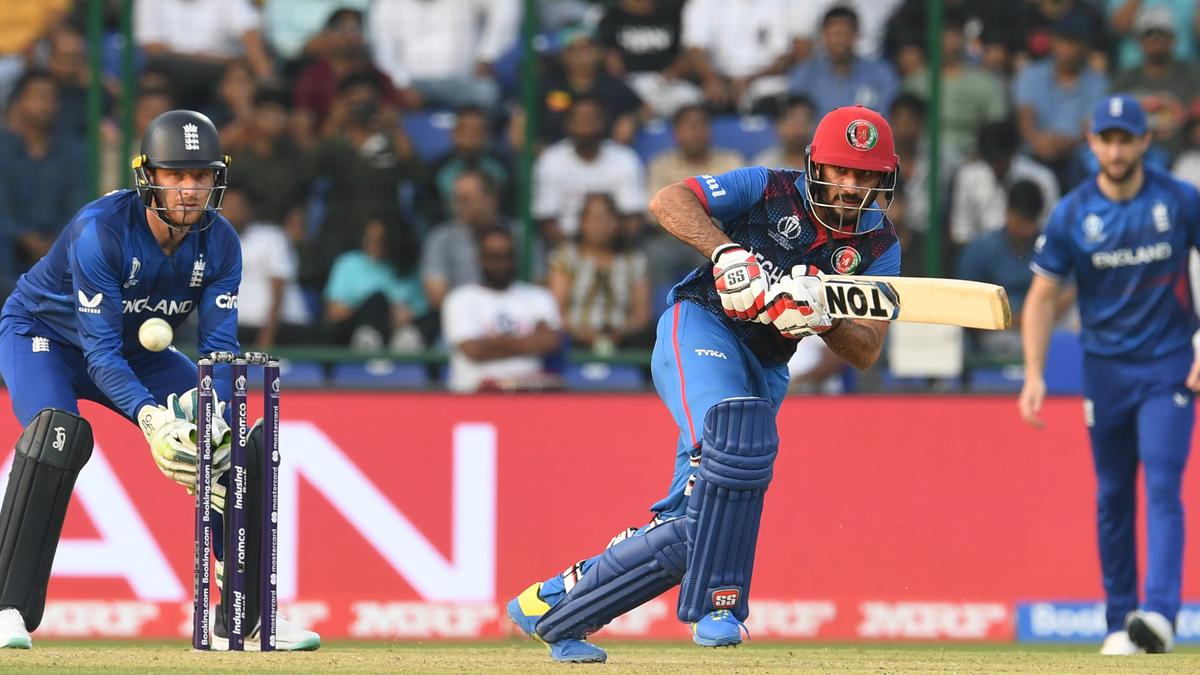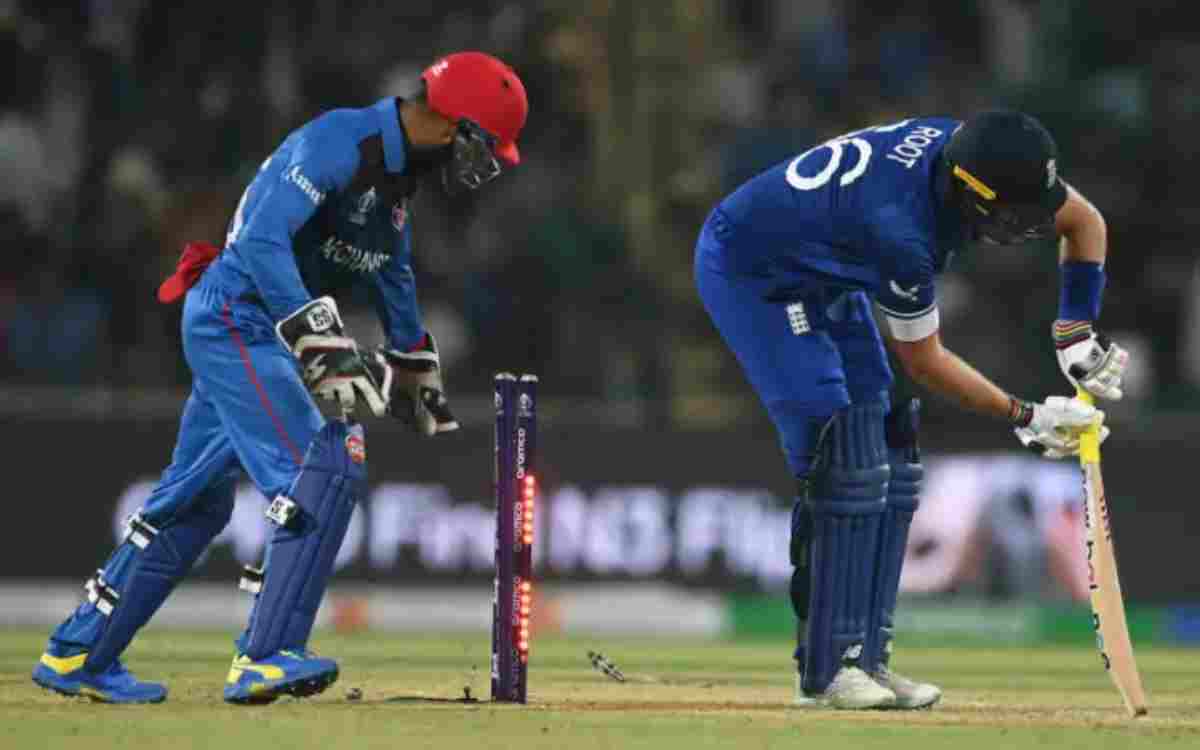England cricket stars have a rare chance to stand up to the Taliban

In 1970, a young white activist named Peter Hain led a campaign of disruptive protest which led to the England cricket team’s decades-long boycott of South Africa.
The apartheid regime, which deprived over 80 per cent of its population of basic life chances, was at its height. Hain was the child of committed anti-apartheid campaigners, associates of Nelson Mandela forced into exile in Britain due to the family’s anti-racist activism.
Knowing the South African regime’s true evil, Hain has spoken of how appalled he was to see its representatives still “feted in sports stadia around the world”. He saw a global boycott of South Africa’s sport as crucial to convincing the white South African middle-classes of the strength of global feeling. “It hit them right in the gut,” Hain later said.
Initially, as is often the case today, British sporting bodies were characterised by cowardice. In 1968, South Africa cancelled a visit by the English when their guests selected Basil D’Oliviera, a non-white English player of South African descent. The English team, cravenly, responded by inviting the South Africans to tour England instead.
The consequent protest led by an “outraged” Hain has been called “the most successful mass action in post-Second World War British history” by leading South African scholars. England cancelled the tour and later that year, the International Cricket Council suspended South Africa, establishing a boycott which would last until the fall of the apartheid regime.
Hain was always clear about the principle underlying his campaign: his target was not apartheid as a whole, but apartheid in sport. No nation should play South Africa, he repeated, until the country allowed all racial minorities full access to its own sports teams.
Hain was right. The boycott of cricket, soon extended to rugby, hit middle class South Africans “in the gut”, because cricket has long been central to South African life.
It is not the only nation where cricket survived long after the British Empire retreated, a lasting legacy of our shrunken global impact. In Pakistan, the sport draws greater viewing figures than any other game. Yet Britain seems as incapable of moral leadership in the cricket community as it did in 1969.
A small news announcement, buried on Christmas Eve, presents the England and Wales Cricket Board with as great an ethical challenge as the South African apartheid regime.
This year, the ICC Champions Trophy will take place in Pakistan. The England men’s team has been drawn in the same group as Afghanistan’s men’s team – or rather, Afghanistan’s only team. After all, women in Afghanistan are not only banned from playing cricket; they are banned from speaking in public; speaking in private (except in special circumstances); singing; reading aloud; or even giving birth without a complex system of male supervision.
Just this week, a Taliban edict limits the building of windows, so that women cannot see or be seen via them. But on 26 February, Afghanistan’s men will play England.
In Afghanistan, cricket has been popular since the late 19th-century. During the last sustained period of Taliban rule, the government tried and failed to ban it. So essential was it to keeping the peace – that is, to keeping Afghan men acquiescent – that in 2000 it became the only organised sport licensed by the Taliban.
Cricket, therefore, has always been political in Afghanistan. If they have an ounce of moral dignity, England’s cricketers should boycott any team licensed by the Taliban, and let Afghanistan’s men blame their pariah government.
The England and Wales Cricket Board has already acknowledged the moral compromise of engaging with Afghan cricket: CEO Richard Gould told The Cricketer this May that England would not schedule a bilateral series against Afghanistan while the government banned women from the sport.
This was an easy comment to give a cricket magazine, about a hypothetical fixture no one had ever scheduled or planned. It is when England takes part in international tournaments beyond our nation’s control that asserting our values means making genuine sporting sacrifices.
At times, writing about Afghanistan’s treatment of women is so baffling and distressing that it becomes impossible to rationalise. It feels incomprehensible that the rest of the world simply co-exists with it.
Human rights campaigners have successfully imposed a sporting ban on Russia, following the invasion of Ukraine, with Russian players forced to compete in international tournaments as “neutrals”. The BDS campaign, which calls for boycott, divestment and sanctions against the state of Israel, has the support of leading British arts figures and has led to the cancellation of a series of events involving Israeli athletes.
Moreover, the legacy of the South African boycott continues to inspire new generations of campaigners: the BDS boycott against Israel regularly cites the Gleneagles Agreement of 1977, in which Commonwealth leaders committed to sporting bans on South Africa.
It rarely serves humanity for us to rank human rights violations against different groups, as if the severity of one group’s suffering makes another’s more tolerable. Yet if South Africa’s apartheid established the bar for sporting boycotts, there can be no question that the treatment of women in Afghanistan – 51 per cent enslaved on the basis of biological sex – should face the same repercussions.
In August 2021 after the fall of Kabul, Hain (now a Lord) called for greater engagement with the Taliban, “so that they are discouraged from returning to their bad old ways, including their oppression of women and girls”. Welcoming Afghanistan’s new rulers to the global community could “incentivise” them positively, he argued. “Experience from Northern Ireland shows… you will fail if you treat groups like the Taliban as pariahs.”
Back in the day, Hain insisted that a nation should only be welcomed to international fixtures if it allowed all its people, no matter their race, to play cricket. To be fair to Hain, he was no longer speaking as a bright-eyed activist, but as a once shadow foreign minister in a faded global power.
The West’s impotence towards Afghanistan is a product of our shame at the total collapse of our 20-year attempt to keep the Taliban from power. No wonder our leaders have been anxious since to pretend that the Taliban had “changed” – think of the MP Tobias Ellwood in 2023, when he gushed that their leadership had “transformed” the country.
At every stage, the West has allowed the Taliban to set the terms for women’s engagement, not only within its own borders but at international summits and fixtures. This summer saw the latest round of international talks in Doha, this time led by the UN, from which all Afghan women were formally excluded at the request of the Taliban. There were no female human-rights activists permitted in the negotiating rooms. That same week one female activist was reportedly gang-raped and tortured, on video, in a Taliban prison.
We can do very little to force the government of Afghanistan to permit women’s participation in events within their own borders. But we can and should refuse to let them set the terms for the international community.
Britain’s power is fading; a sporting boycott means less from us than it did even in 1970. Yet England’s cricketers are being asked to normalise a regime that treats women as livestock. England’s women will be watching them.
Related
UK politicians urge England to boycott Champions Trophy game against…
England should refuse to play the Champions Trophy cricket match against Afghanistan next month according to a letter signed by more than 160 U.K. politicians.T
England Urged To Boycott Afghanistan Match By British Politicians. Here’s…
Team Afghanistan in action© X (Twitter)
England urged to boycott Champions Trophy match against Afghanistan |…
A cricket collage including the logo of the England and Wales Cricket Board Over 160 British parliamentarians have urged the England and Wales Cricket Board (E









